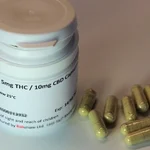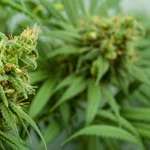Understanding the Relationship Between Marijuana and Appetite
When it comes to understanding the relationship between medical marijuana and appetite, there are a few key things to keep in mind. First and foremost, it’s important to understand that marijuana contains a number of different compounds, including THC (tetrahydrocannabinol) and CBD (cannabidiol), each of which can have different effects on the body.
One of the most well-known effects of marijuana is its ability to stimulate appetite, a phenomenon commonly referred to as “the munchies.” This effect is primarily associated with THC, which has been shown to activate certain neurons in the brain that are responsible for regulating hunger and satiety.
However, it’s important to note that not all types of marijuana are created equal when it comes to their impact on appetite. In fact, some strains of marijuana may actually have the opposite effect, suppressing appetite rather than stimulating it. Additionally, the way in which marijuana is consumed can also impact its effects on appetite.
The Science of the Munchies
So how, exactly, does marijuana stimulate appetite? As mentioned, it primarily comes down to the THC content of the plant. THC interacts with the body’s endocannabinoid system, which is involved in regulating a wide range of physiological processes, including appetite.
When THC binds to cannabinoid receptors in the brain, it can enhance the activity of certain neurons in the hypothalamus, a region of the brain that plays a key role in regulating hunger and satiety. Specifically, THC has been shown to increase the activity of neurons that produce a hormone called ghrelin, which stimulates appetite.
In addition to its effects on ghrelin, THC has also been shown to increase the activity of neurons that produce dopamine, a neurotransmitter that is involved in the brain’s reward system. This can lead to an increased sense of pleasure and enjoyment when eating, further enhancing the munchies effect.
Different Types of Marijuana and Appetite
While THC is generally considered to be the main driver of the munchies effect, it’s important to note that not all strains of marijuana contain the same amount of THC. In fact, some strains may contain very little THC at all, and may even have higher levels of CBD.
CBD, unlike THC, is not psychoactive and does not produce the same high that is typically associated with marijuana. However, it does have a number of potential health benefits, including its ability to reduce inflammation and anxiety.
Interestingly, some research has suggested that CBD may have a slight appetite-suppressing effect, which could make it useful for individuals who are looking to lose weight or manage their appetite. However, more research is needed to fully understand the relationship between CBD and appetite.
The Role of Consumption Method
Another important factor to consider when it comes to the munchies effect is the way in which marijuana is consumed. For example, smoking or vaping marijuana can lead to a faster onset of effects, which can include an increase in appetite.
However, edibles, which are typically consumed orally and take longer to take effect, may actually have a stronger munchies effect. This is because the THC in edibles is metabolized differently than the THC in smoked or vaped marijuana, leading to a more potent and longer-lasting effect.
Additionally, the dosage of marijuana can also impact its effects on appetite. Higher doses of THC may lead to a stronger munchies effect, while lower doses may have little to no impact on appetite.
Debunking Common Myths About Medical Marijuana and Appetite
While the munchies effect is a well-known phenomenon associated with marijuana, there are a number of common myths and misconceptions about its impact on appetite. Here are a few of the most common:
Myth #1: Medical marijuana will always make you hungry.
While it’s true that marijuana can stimulate appetite in many individuals, it’s important to recognize that not everyone will experience the munchies effect. Additionally, different strains of marijuana can have different effects on appetite, as can the way in which it is consumed.
Myth #2: The munchies effect is always a bad thing.
While some people may view the munchies effect as a negative side effect of marijuana use, it can actually be beneficial for individuals who are struggling with appetite issues. For example, medical marijuana may be prescribed to individuals with conditions like cancer or HIV/AIDS, who may experience a loss of appetite as a result of their illness or treatment.
Myth #3: The munchies effect is always unhealthy.
While it’s true that consuming large amounts of food while under the influence of marijuana can potentially lead to overeating and weight gain, it’s important to keep in mind that not all foods are created equal. In fact, some research has suggested that marijuana may actually enhance the flavor and enjoyment of healthier foods, such as fruits and vegetables.
Myth #4: The munchies effect will always lead to weight gain.
While consuming large amounts of unhealthy foods while under the influence of marijuana can potentially lead to weight gain, it’s important to recognize that the munchies effect is not a guaranteed outcome of marijuana use. Additionally, marijuana may have other potential health benefits, such as reducing anxiety and inflammation, which could ultimately lead to a healthier lifestyle.
Conclusion
Overall, while the munchies effect is a well-known phenomenon associated with marijuana use, it’s important to recognize that not all types of marijuana will have the same impact on appetite. Additionally, the way in which marijuana is consumed can also impact its effects on appetite, as can the dosage.
While there are certainly potential risks associated with overeating while under the influence of marijuana, it’s important to recognize that the munchies effect can also have potential benefits for individuals who are struggling with appetite issues as a result of their medical condition or treatment. As with any medication, it’s important to speak with a healthcare provider to determine whether medical marijuana is an appropriate treatment option for your individual needs.












